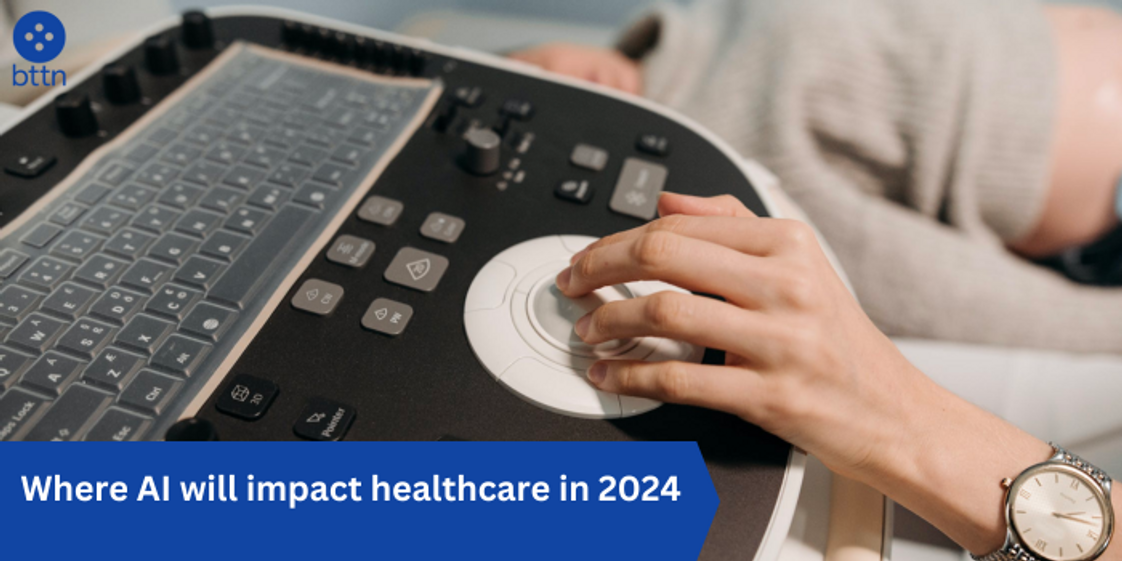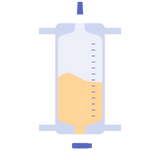
Where AI will impact healthcare in 2024
Posted by Pankaj Dhiman on Jan 23rd 2024
The use of artificial intelligence (AI) in healthcare is poised to revolutionize the way doctors diagnose, treat, and manage patients. AI can enable more efficient and accurate diagnoses, providing doctors with a powerful tool for improving the quality of care for their patients. From optimizing resource allocation to enhancing patient engagement and support for preventive healthcare measures, AI is changing the face of healthcare delivery as we know it.
Must Read: Top Trends in Wholesale Medical Supplies for Seattle in 2024
Key Takeaways:
- The emergence of healthcare AI is set to revolutionize healthcare delivery in 2024.
- The technology is being used to improve diagnoses, treatment plans, resource allocation and to streamline administrative processes.
- AI systems enable personalized medicine, remote patient monitoring, and telehealth.
- Responsible AI development and continued research will ensure effective implementation, safeguarding against negative outcomes.
- The future of healthcare is promising, as AI-powered systems hold potential for improving overall healthcare outcomes.
Must Read: Delivering Medical Supplies: A Comprehensive Guide
Transformative AI Impact on Healthcare
The impact of artificial intelligence (AI) on healthcare has been nothing short of transformative. AI technologies are revolutionizing the industry by improving diagnostic accuracy, enhancing treatment planning, optimizing resource allocation, and streamlining administrative processes.
One example of AI in action is the use of chatbots to improve patient care and engagement. These conversational agents provide personalized support, answer queries, and offer 24/7 assistance. By leveraging natural language processing and machine learning, chatbots are helping healthcare professionals provide more effective and efficient care, and improving outcomes for patients.
Another example is the use of image recognition technology to diagnose medical conditions. AI-powered systems analyze medical images and identify patterns to identify and diagnose conditions at a faster and more accurate rate than traditional methods. This creates higher levels of confidence in diagnoses and enables healthcare professionals to create more personalized treatment plans for patients.
Must Read: bttn: Wholesale Medical Supplies & Equipment
Real-World Examples of AI Implementation in Healthcare
The impact of AI can be seen in real-world examples, such as the Seattle Children’s Hospital. They implemented an AI-powered algorithm that helped improve the accuracy of their sepsis diagnosis and early intervention by approximately 24%.
The Los Angeles-based Cedars-Sinai Medical Center implemented an AI system that uses deep learning algorithms to predict when patients may develop life-threatening kidney injuries. Early intervention has saved many patients from worsening conditions and has improved outcomes.
Must Read: Medical and Surgical Tape: Benefits, Uses, and 10 Top Products for Your Needs
Revolutionizing Care Delivery and Patient Outcomes
The impact of AI in healthcare goes far beyond diagnostics and treatment planning. AI-powered systems are transforming the delivery of care and improving patient outcomes.
Personalized Medicine
By leveraging patient data, AI algorithms are enabling personalized medicine and tailoring treatments to individual needs. With AI, healthcare providers can identify the most effective treatments for each patient and minimize the risk of adverse reactions.
Remote Patient Monitoring and Telehealth
Healthcare AI is facilitating remote monitoring and telehealth, enabling patients to receive care wherever they are. With AI-enabled devices, healthcare providers can remotely monitor patients' vital signs and track their progress, improving outcomes for remote and at-home patients.
Enhanced Patient Engagement
AI-powered chatbots and virtual assistants are increasing patient engagement by providing personalized interactions and round-the-clock access to healthcare information. Patients can receive answers to their questions and guidance on managing their health, leading to improved self-care and better outcomes.
Preventive Healthcare Measures
By leveraging predictive analytics, healthcare AI is enabling preventive healthcare measures, identifying risk factors and potential health issues before they become serious. With AI, healthcare providers can develop proactive care plans, reducing the need for reactive treatments and improving overall health outcomes.
While there are certainly challenges to be addressed in implementing AI in healthcare, the potential benefits are clear. By revolutionizing care delivery and improving patient outcomes, healthcare AI is poised to transform the healthcare industry for the better.
Must Read: How to Treat Common Wounds at Home: A Step-by-Step Guide
Conclusion
As we have seen, the impact of AI in healthcare is transformative, offering immense potential for improving patient outcomes, reducing costs, and enhancing care delivery. But as with any technology, there are challenges and considerations that need to be addressed to ensure responsible and effective implementation.
While AI is not a silver bullet that will solve all the challenges facing healthcare, it can certainly serve as a powerful tool to support healthcare providers, policymakers, and patients alike. By harnessing the power of AI, we can unlock new solutions, create more personalized care, and ultimately improve the health and wellbeing of people all over the world.
The future of healthcare is exciting, and AI is set to play a critical role in shaping it. As we move forward, it is crucial that we continue to invest in research and development, collaborate across sectors and countries, and prioritize ethical considerations to ensure that we realize the full potential of this groundbreaking technology.
Must Read: 7 Essential Medical Supplies Every Healthcare Facility Should Have
FAQ
What is the impact of AI on healthcare?
AI has the potential to revolutionize healthcare by improving care delivery, enhancing patient outcomes, and optimizing resource allocation. It can be used to improve diagnostic accuracy, personalize medicine, enable remote patient monitoring, enhance patient engagement, and support preventive healthcare measures.
How will AI transform healthcare?
AI will transform healthcare by improving diagnostic accuracy, enhancing treatment planning, optimizing resource allocation, and streamlining administrative processes. It has the potential to revolutionize care delivery and lead to better patient outcomes. Real-world examples and success stories showcase the transformative power of AI in healthcare.
What areas of healthcare will be impacted by AI in 2024?
AI's impact on healthcare will be felt in various areas, including diagnostic accuracy, treatment planning, resource allocation, administrative processes, personalized medicine, remote patient monitoring, patient engagement, and preventive healthcare measures. AI technologies are expected to significantly improve overall healthcare outcomes.
What are the potential benefits and challenges of AI in healthcare?
The potential benefits of AI in healthcare include improved care delivery, enhanced patient outcomes, personalized medicine, remote patient monitoring, patient engagement, and preventive healthcare. However, there are also challenges to consider, such as data privacy, ethical considerations, regulatory compliance, and the need for continued research and development.
What is the future of AI in healthcare?
The future of AI in healthcare holds immense potential for improving overall healthcare outcomes. Continued research, development, and ethical considerations are crucial for responsible and effective implementation. AI has the power to revolutionize care delivery, enhance patient outcomes, and optimize resource allocation, leading to a more efficient and effective healthcare system





























































